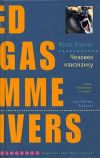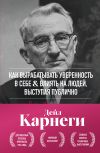Читать книгу "Аэропорт / Аirport"

Автор книги: Артур Хейли
Жанр: Иностранные языки, Наука и Образование
Возрастные ограничения: 12+
сообщить о неприемлемом содержимом
Артур Хейли / Arthur Hailey
Аэропорт / Airport
© Arthur Hailey, 1968
© Random House, USA, Knopf Doubleday
© Прокофьева О. Н., адаптация текста, комментарии, 2018
© ООО «Издательство АСТ», 2018
Part One
6:30 P.M. – 8:30 P.M. (CST)
1
At half-past six on a Friday evening in January, Lincoln International Airport, Illinois, was functioning, though with difficulty, because of the meanest, roughest winter storm in half a dozen years. The storm had lasted three days.
A United Air Lines food truck, loaded with two hundred dinners, was lost in snow somewhere on the airport perimeter. A search for the truck in storm had so far failed.
Out on the airfield, runway three zero was out of use. It was blocked by an Aéreo-Mexican jet—a Boeing 707. Its wheels were deeply mired in the ground beneath snow.
In the main passenger terminal, chaos predominated. Terminal waiting areas were jammed with thousands of passengers from delayed or canceled flights.
The wonder was, Mel Bakersfeld, airport general manager, reflected, that anything was continuing to operate at all.
At the airport, maintenance snow crews were nearing exhaustion. Within the past few hours several men had been ordered home over-fatigued.
At the Snow Control Desk near Mel, Danny Farrow—at other times an assistant airport manager, now snow shift supervisor—was calling Maintenance Snow Center by radiophone.
“We’re losing the parking lots. I need six more Payloaders and a banjo team.”
“Sure, sure. Six more Payloaders. We’ll get ‘em from Santa Claus.” A pause, then more aggressively, “Any other stupid notions?”
Glancing at Danny, Mel shook his head. He recognized the speakerphone voice as belonging to a senior foreman who had probably worked continuously since the present snowfall started. Usually, after a snow-fighting winter, airport maintenance and management had a party, which they called “kiss-and-make-up night”. They would certainly need one this year.
Danny said reasonably, “We sent four Payloaders after that United food truck. They should be through, or almost.”
“They might be—if we could find the truck.”
“You haven’t located it yet?”
“Listen, do you birds in the penthouse have any idea what it’s like out on the field? Maybe you should look out the windows once in a while.”
Mentally, Mel Bakersfeld filtered out most of the exchange, though he was aware that what had been said about conditions away from the terminal was true. And removing snow from the airport’s operating area was equal to clearing seven hundred miles of highway.
The maintenance foreman’s voice came on the radiophone again. “We’re worried about that truck too, Danny. The driver could freeze out there.”
Mel said, “That United flight took off, didn’t it? Without food.”
“I hear the captain told the passengers it’d take an hour to get another truck, that they had a movie and liquor aboard, and the sun was shining in California. Everybody voted to get the hell out. I would, too.”
Mel nodded, resisting a temptation to direct the search himself. Action would be a therapy. At the same time, Danny was already doing the right thing – intensifying the truck search. The missing driver must be saved first.
Between calls, Danny warned Mel, “We’ll hold up all the other food trucks till we find the guy.”
Mel nodded. There would be a flood of protests when other airlines realized their food trucks were not getting through.
With one hand, Danny was using a red telephone; with the other, leafing through emergency orders—Mel’s orders for occasions such as this. The red phone was to the airport’s duty fire chief.
“And when we locate the truck, let’s get an ambulance out there. But better not go until we know where exactly. We don’t want to dig you guys out, too.”
The sweat was gleaming on Danny’s balding head. Mel was aware that Danny disliked running the Snow Control Desk and was happier in his own department of airport planning, discussing aviation’s future. Such things were comfortably projected well ahead, with time to think. Just as there were people who lived in the past, Mel thought, for Danny Farrows, the future was a refuge. But, unhappy or not, now Danny was coping.
Mel picked up a direct line phone to Air Traffic Control.
“What’s the story on that Aéreo-Mexican 707?”
“Still there, Mr. Bakersfeld. They’ve been working a couple of hours trying to move it. No luck yet.”
That trouble had begun when an Aéreo-Mexican captain, taxiing out for takeoff, mistakenly passed to the right. Unfortunately, the ground to the right had a drainage problem. Within seconds of its wrong-way turn, the hundred and twenty ton aircraft was deeply mired in the mud.
When it became obvious that the aircraft could not get out, loaded, under its own power, the passengers were disembarked and helped to hastily hired buses. Now, more than two hours later, the big jet was still stuck, its fuselage and tail blocking runway three zero.
“Right now we’re holding ten flights for taxi clearance, another dozen waiting to start engines.”
It was a demonstration, Mel reflected, of how urgently the airport needed additional runways and taxiways. For three years he had been urging construction of a new runway to parallel three zero, as well as other operational improvements. But the Board of Airport Commissioners, under political pressure from downtown, refused to approve.
“The other thing,” the tower watch chief said, “is that with three zero out of use, we’re having to route takeoffs over Meadowood. The complaints have started coming in already.”
Mel groaned. Though the airport had been established long before the community, Meadowood’s residents complained bitterly about noise from aircraft. Eventually, after long negotiations involving politics and publicity, the airport had conceded that jet takeoffs and landings directly over Meadowood would be made only when essential in special circumstances.
Moreover, it was also agreed that aircraft taking off toward Meadowood would– almost at once after becoming airborne—follow noise abatement procedures. This produced protests from pilots, who considered the procedures dangerous. The airlines, however, had ordered the pilots to conform. Yet Meadowood residents were still protesting, organizing, and planning legal harassment of the airport.
“How many calls have there been?”
“Fifty at least, we’ve answered; and there’ve been others we haven’t.”
“I suppose you’ve told the people who’ve called that we’ve a special situation—the storm, a runway out of use.”
“We explain. But nobody’s interested. Some of ‘em say that problems or not, pilots are still supposed to use noise abatement procedures.”
“If I were a pilot, neither would I.”
“I guess it depends on your point of view. If I lived in Meadowood, maybe I’d feel the way they do.”
“You wouldn’t live in Meadowood. You’d have listened to the warnings we gave people, years ago, not to build houses there.”
“I guess so. By the way, one of my people told me there’s another community meeting over there tonight.”
“Whatever they are planning,” Mel predicted, “we’ll hear about it soon.” Changing the subject, Mel inquired, “Is my brother on duty tonight?”
“Affirmative. Keith’s on radar watch—west arrival.”
West arrival, Mel knew, was one of the tough, tense positions in the tower. It involved supervising all incoming flights in the west quadrant. “Is Keith all right?”
There was a slight pause before the answer. “Yes, he is. I wish I could let him take things easier. But we’re short-staffed and everybody is under the gun.” He added, “Including me.”
“I know you are, and I appreciate your watching out for Keith the way you have.”
“Well, in this job most of us have combat fatigue at one time or another. When it happens we try to help each other.”
“Thanks.” The conversation had not eased Mel’s anxiety. “I may drop in later.”
“Right, sir.” The tower chief hung up.
The “sir” was strictly a courtesy. Mel had no authority over ATC. But relationships between controllers and airport management were good, and Mel saw to it they stayed that way.
Any airport was an odd complexity of overlapping authority. No single individual had supreme command, yet no segment was entirely independent. As airport general manager, Mel was closest to an over-all authority, but there were areas where he knew better than to intrude. Air Traffic Control was one, airline internal management another.
Mel remembered about the note delivered to him fifteen minutes before.
M —
Thought shd warn u—airlines snow committee (on demerest’s urging …why does your bro-in-law dislike you?) preparing critical report becos run-ways & taxiways snow clearance inefficient… report blames airport (meaning u) for flight delays… also claims 707 wouldn’t have stuck if taxiway plowed sooner, better … and where are you?… buy me coffee soon.
luv t
The “t” was for Tanya—Tanya Livingston, passenger relations agent for Trans America, and a special friend of Mel’s. Mel read the note again, as he usually did messages from Tanya, which became clearer the second time around.
The Demerest in the note was Captain Vernon Demerest, also of Trans America. As well as being one of the airline’s more senior captains, Demerest was a campaigner for the Air Line Pilots Association, and, this season, a member of the Airlines Snow Committee at Lincoln International.
Vernon Demerest also happened to be Mel’s brother-in-law, married to Mel’s older sister, Sarah. However, there was little cordiality between Mel and his brother-in-law, whom Mel considered conceited and pompous. Others, he knew, had the same opinion.
Mel was not greatly worried about the report. Whatever shortcomings the airport might have in other ways, he knew they were coping with the storm as well as any organization could.
Mel decided he would make an inspection of the present snow clearance situation at the same time that he was out on the airfield checking on the blocked runway and the mired Aéreo-Mexican jet.
He had remembered what Tanya said in her note about having coffee together. He would stop at his own office first, then he would drop by Trans America to see her. The thought excited him.
2
Mel entered his own interior office. The only reason he had stayed through most of these three-day storm was to be available for emergencies. Otherwise, he mused, as he put on a heavy topcoat and fur-lined boots, by now he would have been home with Cindy and the children.
Or would he?
No matter how objective you tried to be, it was hard to be sure of your own real motives. Not going home seemed lately to have become the pattern of his life. His job was a cause, of course. But—if he was honest with himself—the airport also offered an escape from the quarrels between himself and Cindy which seemed to occur nowadays whenever they spent time together.
“Oh, hell!”
A glance at a typed reminder from his secretary confirmed what he had just recalled. Tonight there was another of his wife’s tedious charity affairs. A week ago, reluctantly, Mel had promised to attend.
Fortunately, the starting time was late—almost two hours from now. So he could still make it, even after inspecting the airfield. Mel would be downtown only a little late. He had better warn Cindy, though. Mel dialed his home number. Roberta, his elder daughter, answered.
“Hi,” Mel said. “This is your old man.”
Roberta’s voice came coolly. “I know.”
“How was school today?”
“Could you be specific, Father? There were several classes.”
Mel sighed. Did all fathers, he wondered, abruptly lose communication with their daughters at age thirteen? Less than a year ago, the two of them had seemed as close as father and daughter could be. Mel loved both his daughters deeply—Roberta, and her younger sister, Libby. There were times when he realized they were the only reasons his marriage had survived.
“Never mind,” Mel said. “Is your mother home?”
“She went out. She said, if you phoned, to tell you, you have to be downtown to meet her, and for once try not to be late.”
Roberta was undoubtedly repeating Cindy’s words exactly.
“If your mother calls, tell her I might have to be a little late, and that I can’t help it.”
“Libby wants to talk to you.”
“In a minute. I was just going to tell you—because of the storm I may not be home tonight. There’s a lot happening at the airport.”
“Will you speak to Libby now?”
“Yes, I will. Goodnight, Robbie.”
“Goodnight.”
The telephone changed hands.
“Daddy, Daddy! Guess what!” Libby was always breathless as if, to a seven-year-old, life were excitingly on the run and she must forever keep pace. “Well, at school, Miss Curzon said for homework we have to write down all the good things we think will happen next month.”
He could understand Libby’s enthusiasm. To her, almost everything was exciting and good, and the few things which were not were brushed aside and speedily forgotten.
“That’s nice,” Mel said.
“Daddy! Will you help me? I want a map of February.”
Mel smiled. Libby had a verbal shorthand of her own which sometimes seemed more expressive than conventional words.
“There’s a calendar in my desk.” Mel told her where to find it and heard her small feet running from the room, the telephone forgotten.
3
There was a knock at the outer door of Tanya Livingston’s office, and Mel Bakersfeld leaned in. “I can drop back later, if you like.”
“Please stay.” She smiled. “We’ve almost finished.”
He saw her fill in a voucher for a young girl, and hand it to her. “Give this to the taxi dispatcher, Patsy, and he’ll send you home. Have a good night’s rest, and we’ll expect you back tomorrow.”
When the girl left, Tanya turned to Mel. She said brightly, “Hullo. You got my note?”
“Hi! What was that about? Battle fatigue? I’m tired, too. How about sending me off in a taxi?”
She looked at him, inquiringly. Her eyes—a bright, clear blue—had a quality of directness. She had a slim figure, yet with a fullness which the trim airline uniform heightened… Mel was conscious of her desirability and warmth.
“Only if the taxi goes to my place, and you let me cook you dinner.”
He hesitated, then reluctantly shook his head. “I wish I could. But we’ve some trouble here, and afterward I have to be downtown.” He got up. “Let’s have coffee, anyway.”
The sudden invitation from Tanya had surprised him. They had had several dates together, but until now she had not suggested visiting her apartment.
Lately, Mel had sensed that if their meetings away from the airport continued, there could be a natural and obvious progression. But he had moved cautiously, instinct warning him that an affair with Tanya would be no casual romance but a deeply emotional involvement for them both.
In the coffee shop, Mel glanced around. He nodded toward the outer door through which they could both see a moving, surging swarm of people.
Tanya shuddered. “Can you imagine what it’ll be like when they collect their baggage? I don’t even want to think about it.”
“Nor do a good many other people—who ought to be thinking about it, right now.” Their conversation had already drifted into aviation. Airplanes and airlines held a fascination for Tanya, and she liked talking about them. So did Mel.
“The really big thing, however, which most airport planning hasn’t caught on to yet is that we’re moving toward the day when air freight business will be bigger than passenger traffic. Not long ago, hardly anybody wanted to work in air freight departments; it was backroom stuff; passenger business had the glamour. Not any more! Now the bright boys are heading for air freight. They know that’s where the future and the big promotions lie.”
Tanya laughed. “I’ll be old-fashioned and stick with people.”
A waitress came to their table. They ordered coffee, Tanya cinnamon toast, and Mel a fried egg sandwich.
When the waitress had gone, Mel grinned. “I guess I started to make a speech. I’m sorry.”
“Maybe you need the practice.”
“I’m not president of the Airport Operators Council any more. I don’t get to Washington as much, or other places either.”
Curiously, it was a speech of Mel’s which had brought them together to begin with. At one of the rare interline meetings which airlines held, he had talked about coming developments in aviation. Tanya had been there and later sent him one of her lower case notes:
great. mind suggestion? it would all be better if more abt people, not facts…
tl
As well as amusing him, the note had caused him to think. It was true, he realized—he had concentrated on facts and systems. He revised his speech notes, shifting the emphasis as Tanya suggested. The result was the most successful presentation he had ever made. It gained him an ovation and was widely reported internationally. Afterward he had telephoned Tanya to thank her. That was when they had started seeing each other.
“So, why does your brother-in-law dislike you?”
“I guess he knows I’m not overly keen on him.”
“He is taking Flight Two to Rome tonight.”
Mel smiled. “The Golden Argosy?” Mel was aware that Trans America Flight Two—The Golden Argosy—was the airline’s prestige flight. He also knew that only the line’s most senior captains ever commanded it.
At an adjoining table, a woman said loudly, “Geez! Look at the time!”
Instinctively, Mel did. Getting up from the table, he told Tanya, “Don’t go away. I have to make a call.”
There was a telephone at the cashier’s counter that he used. Danny Farrow’s voice said, “I was going to call you. I just had a report on that stuck 707. You knew they had asked TWA for help? TWA has sent for Joe Patroni.”
“If anyone can get that airplane moved tonight,” Mel conceded, “it’ll be Joe.”
“Oh, a bit of good news—we found that United food truck. The driver was unconscious under the snow. But they got an inhalator on him, and he’ll be all right.”
Tanya was still at the table when Mel returned, though preparing to go.
“I’m coming, too.”
As Mel paid their check, two Trans America ticket agents entered the coffee shop. One came across.
“Excuse me, Mr. Bakersfeld… Mrs. Livingston, the D.T.M.’s looking for you. There is a stowaway—on Flight 80 from Los Angeles.”
Tanya appeared surprised. Aerial stowaways were seldom a cause of great concern.
Mel walked with Tanya from the coffee shop into the central lobby and stopped at the elevator.
“Drive carefully out there,” she cautioned.
“Your stowaway sounds interesting. It’ll give me a reason to see you again tonight.”
They were close together. As one, each reached out and their hands touched. Tanya said softly, “Who needs a reason?”
In the elevator, going down, he could still feel the warm smoothness of her flesh, and hear her voice.
4
Joe Patroni was on his way to the airport from his home. At the moment, the Italian-American, who was airport maintenance chief for TWA was halted in a traffic tie-up.
Legends had grown up around Joe Patroni.
Joe took a job as an airline mechanic, became a lead mechanic, then a foreman with a reputation as a top-notch troubleshooter. His crew could change an engine faster than an airplane manufacturer said it could be done; and with absolute reliability.
A contributing reason for his success was that he never wasted time on diplomacy. Instead, he went directly to the point, both with people and airplanes. He also had a total disregard for rank, and was equally forthright with everyone.
On one occasion, Joe Patroni walked off his job and, without prior consultation, rode an airplane to New York. He carried a package with him. On arrival, he went by bus and subway to the airline’s Olympian headquarters where he strode into the president’s office. Opening the package, he deposited an oily, disassembled carburetor on the presidential desk.
The president, who had never heard of Joe Patroni, and whom no one ever got to see without prior appointment, was apoplectic until Joe told him, “If you want to lose some airplanes in flight, throw me out of here. If you don’t, sit down and listen.”
The president sat down and listened. Afterward, he called in his engineering vice-president who ordered a mechanical modification affecting carburetor icing in flight, which Patroni had been urging unsuccessfully for months.
Soon Joe was promoted to senior supervisor, and a few years later was given the important post of maintenance chief at Lincoln International.
On a personal level, it was said that Joe Patroni made love to his wife, Marie, most nights, the way other men enjoyed a pre-dinner drink. In fact, he had been thus engaged when the telephone message came from the airport.
The same rumor continued: Patroni made love the same way he did everything else—with a long, thin cigar. This was untrue, at least nowadays. Marie, having coped with several pillow fires during their early years of marriage had forbidden any more cigars in bed. Joe complied with the edict because he loved his wife. He had reason to. When he married her, she was probably the most popular and beautiful hostess in the entire airline system, and twelve years and three children later she could still hold her own with most successors.
Another thing about Joe Patroni was that he never panicked in emergencies. Instead, he quickly assessed each situation. In the case of the mired 707, instinct told him there was time to finish what he was doing. Soon after, Marie raced to the kitchen in her robe and threw sandwiches together for Joe to eat during his twenty-five-mile drive to the airport. He nibbled on a sandwich now.
Being recalled to the airport after performing a full day’s work was not a new experience, but tonight the weather was worse than any other occasion he remembered. Traffic was moving at a crawl, or not at all. Both his own car and the one immediately ahead had been stationary for several minutes.
Five minutes went by. Ahead, Joe Patroni could see people getting out of cars and walking forward.
Someone shouted, “There’s been an accident. It’s a real mess.”
A large, dark shadow ahead proved to be a massive tractor-trailer unit on its side. The cumbersome eighteen-wheeled vehicle was spread across the road, blocking all traffic movement.
Two state police patrol cars were at the scene. They were questioning the truck driver, who appeared unhurt.
“All I did was touch the goddam brakes,” the driver protested loudly.
A tow truck, amber roof-beacon flashing, approached, moving slowly, on the opposite side of the obstruction.
Joe Patroni shoved forward. He puffed on his cigar, which glowed redly in the wind, and prodded the state trooper sharply on the shoulder. “Listen, son, you’ll never move that with one tow truck.”
“First, mister, there’s spilled gasoline around here. You’d better get that cigar out.”
Patroni ignored the instruction, as he ignored almost all smoking regulations. He waved the cigar toward the overturned tractor-trailer. “What’s more, son, you’d be wasting everybody’s time, including mine and yours, trying to get that hunk of junk right side up tonight. You’ll have to drag it clear so traffic can move, and to do that you need two more tow trucks.” He began moving around, using his electric lantern to inspect the big vehicle from various angles. As always, when considering a problem, he was totally absorbed.
Ten minutes later, working with the police officers, Joe Patroni had virtually taken charge. Helping to clear the blocked highway, he calculated, was the fastest means of getting there.









































